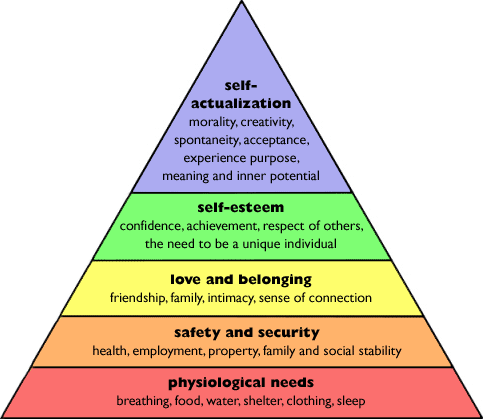I don't mean literally paint a picture, though many people do pick up a brush in retirement. What I mean is, paint a mental picture of yourself after you stop work. What will you do on that first no-longer-employed morning, and the day after that, and every day potentially for the next 30-odd years? What will you do with the rest of your life?
A good way to start is to think about the key elements of what you would regard as a fulfilling retirement. By all means draw on examples from among people you know. It has to be a realistic picture: there’s no point in imagining a dozen grandchildren if you don’t expect to have any. But don’t cut children out of your picture if they are important to you, as there are other ways of involving yourself with young people’s lives.
Budgeting is an important part of the process and something I'll return to in a future post, as your plans must clearly bear some relation to financial reality: don’t imagine homes in five of the world’s most desirable locations unless, as the French put it, you have “les moyens de ta politique” (ie you can afford it!).

It may help structure your thinking to borrow a concept from social psychology, shown in the diagram. Maslow’s hierarchy of needs proposes that human beings are motivated by unmet needs, and that ‘lower’ needs must be fulfilled before the higher ones can be met. Physiological needs come first – air, food, water, shelter, clothing and sleep – followed by safety and security, love and belonging, self-esteem and what Maslow terms self-actualisation.
At one level, this is a statement of the blindingly obvious. Your retirement picture is unlikely to be a happy one if it involves being oxygen-starved, cold, hungry or homeless. But don’t dismiss the approach out of hand: it may also help you focus on how to remedy any gaps. Securing those basic needs, including knowing where you are going to live and what the minimum income needed is to pay for them, must come first for anyone contemplating life after work.
Safety and security often become more important as you grow older, though perversely older people seem to have coped much better mentally with Covid than younger generations. That's strange, given that adolescents, in particular, appear socially and biologically programmed to take risks – risk aversion is rational at a later age when, for instance, a minor fall can lead to broken bones, or a poor investment decision can reduce your living standard for life.
Statistically, you're thousands of times times more likely to die of Covid as an over-80-year-old than someone in their 20s or 30s, but emotionally you're actually less likely to suffer from anxiety or depression during lockdown (though you may feel lonely). Perhaps it's just that most people are more comfortable in their skin as they get older, and have survived setbacks; or that the pandemic has made less difference to retired people's lives than those who are active. I don't know... I'd be interested in others' thoughts.
Whatever the reason, good health would probably still be top of most people’s priorities once they start to think about retirement. Being mentally and physically active won’t guarantee you avoid health problems but it will improve the chances of staying healthier for longer. Then again, staying at home will reduce your chances of catching the dreaded you-know-what. Health insurance, if you can afford it, may counteract anxiety about NHS delays and rationing.
The hierarchy gets more interesting as you move into the higher levels. One of the things people value most about retirement is having more time to spend with friends and family or on hobbies and pastimes. You may get involved in caring for grandchildren, or looking after elderly relations. But retirement can also put a great strain on relationships, so if lockdown has been a preview of what life would be like trapped with a partner you no longer care for... think seriously about what the future holds. Whatever the particular sources of your own sense of belonging, loneliness is a serious problem for the very old and worth thinking about when you’re young enough to do something about it.
That sense of belonging feeds into the last two steps in Maslow’s pyramid too. Western society has lost the veneration for old age that exists in some other parts of the world. Yet there are plenty of ways of achieving fulfilment through the respect of those around you, especially when you have time to devote to new things.
The pandemic has brought family and community to the fore. If it's revealed a gap, your plans may now involve moving closer to your family or to a friendlier neighbourhood. Outdoor space may have moved up your list of priorities. It's almost certainly made you think again about residential care. Perhaps once it's all over, you'll go back to school or learn a new skill such as playing a musical instrument. Voluntary work is another route, as is involvement in social, religious or cultural organisations.
So yes, I know Covid sometimes makes it difficult to plan more than a day or two ahead. Any plan involves risks. But like any journey, it's much easier to reach the destination if you know where you're going before you set out. Watch out for my next post if you haven't yet set your own course...
Comentários